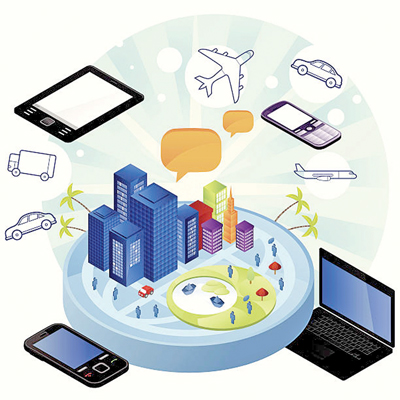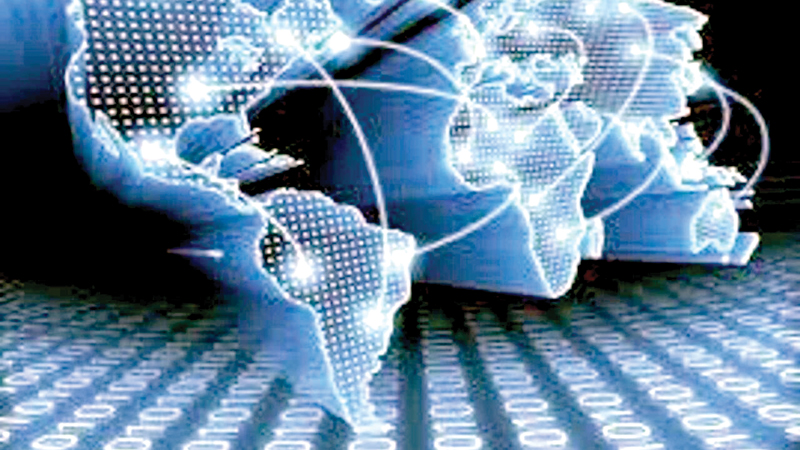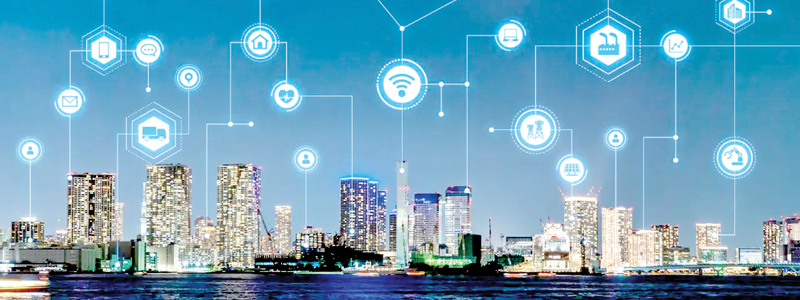Digital Innovation for Sustainable Development – By Pramod de Silva
 The United Nations (UN) and countries around the world will mark the World Telecommunication and Information Society Day (WTISD) on May 17. The theme for this year is “Digital Innovation for Sustainable Development”.
The United Nations (UN) and countries around the world will mark the World Telecommunication and Information Society Day (WTISD) on May 17. The theme for this year is “Digital Innovation for Sustainable Development”.
Building a sustainable future demands innovative thinking and action, especially in the digital realm. WTISD 2024 is a chance to explore how digital innovation can help connect everyone and unlock sustainable prosperity for all. This is especially applicable to the Global South, where glaring inequalities persist in terms of access to and availability of digital services. WTISD 2024 reminds the world of the progress yet to be made to ensure that everyone can benefit from digital technologies.
According to the UN, innovative digital technology can help tackle the world’s most pressing challenges, from fighting Climate Change to eliminating hunger and poverty. In fact, experts estimate that digital technologies can help achieve 70 percent of the targets under the UN Sustainable Development Goals (SDGs) by 2030, which is just six years away.
Yet, glaring digital gaps hinder innovation in many parts of the world. After all, 2.6 billion people are still unconnected to the Internet and digital services. The lack of policies, investment, and digital skills leaves many countries struggling to keep up in the fast-changing digital landscape. Now more than ever, building a sustainable future demands innovative thinking and action in the digital world.
Celebrated every year on May 17, the WTISD marks the founding of the International Telecommunication Union (ITU) – the UN agency for digital technologies. The purpose of WTISD is to help raise awareness of the possibilities that the use of the Internet and other Information and Communication Technologies (ICTs) can bring to societies and economies, as well as ways to bridge the digital divide. Incidentally, May 17 marks the anniversary of the signing of the first International Telegraph Convention. The World Telecommunication Day has been celebrated annually on May 17 since 1969.
New challenges
 While the digital era and new technologies associated with the Internet have brought societies many benefits, countries and societies also face challenges such as growing digital divides, cyber threats and cyber crime, and even human rights violations online. The UN has laid out a roadmap in which all stakeholders and all countries play a role in advancing a safer, more equitable digital world.
While the digital era and new technologies associated with the Internet have brought societies many benefits, countries and societies also face challenges such as growing digital divides, cyber threats and cyber crime, and even human rights violations online. The UN has laid out a roadmap in which all stakeholders and all countries play a role in advancing a safer, more equitable digital world.
“Digital technology is shaping history. But there is also the sense that it is running away with us. Where will it take us? Will our dignity and rights be enhanced or diminished? Will our societies become more equal or less equal? Will we become more, or less, secure and safe? The answers to these questions depend on our ability to work together across disciplines and actors, across nations and political divides. We have a collective responsibility to give direction to these technologies so that we maximise benefits and curtail unintended consequences and malicious use,” says UN Secretary General Antonio Guterres in a preface to the UN Roadmap for Digital Cooperation.
There are eight main points mentioned in this report. The most pressing issue is that nearly half the world’s population currently does not have access to the Internet. This became evident during the pandemic in almost every country, when Governments tried to switch over to online teaching for school and university students. Nearly 50 percent of children in Global South countries could not access the online lessons due to the unavailability of digital devices and/or 4G signals. Even in developed countries, children from poor and marginalised communities could not get on board the e-learning bandwagon due to the same reasons. This division still persists.
UN’s assertion
Hence the UN’s assertion that by 2030, every person should have safe and affordable access to the Internet, including meaningful use of digitally enabled services in line with the SDGs. This may not necessarily mean that every person will have a device, but rather that they should have a point of access to the Internet, such as the Nenasala community Internet service in Sri Lanka.
The second point raised in the report is that Governments must undertake a concerted global effort to encourage and invest in the creation of digital public goods: Open source software, open data, open Artificial Intelligence (AI) and Machine Learning (ML) models, open standards and open content. Indeed, some of the proprietary software licensing fees of well-known tech giants run into thousands of dollars, which most Global South countries cannot afford. Despite being free to use, any open source digital public goods should adhere to privacy and other applicable laws and best practices, do no harm, and help attain the SDGs.
The third point is that digital divides reflect and amplify existing social, cultural and economic inequalities. The gender gap in global Internet use is a stark example – in two out of every three countries, more men use the Internet than women. Moreover, women are also targeted for sexual exploitation on the Internet and the so-called Dark Web. Similar challenges affect migrants, refugees, Internally Displaced Persons (IDPs), older persons, youth, children, persons with disabilities, rural populations, and indigenous peoples. These gaps must be closed.
Another point raised in the report is that many countries and citizens are deprived of capacities and skills crucial to the digital era and to attaining the SDGs.
For example, there are many apps that can be vital to agriculture, but many farmers in the Global South do not have the equipment or the skills to make use of such data.
Digital capacity building must be more needs-driven and tailored to individual and national circumstances, and better coordinated globally. Digital technologies provide new means to exercise human rights, but they are too often used to violate human rights. Regulatory frameworks and legislation on the development and use of digital technologies should have fundamental rights at the core. Data protection and privacy, Digital ID, the use of surveillance technologies including Facial Recognition (FR), online harassment and content governance are of particular concern. Yes, technologies such as FR can be used to track down undesirable elements, but they can also be misused.
Content governance is a particularly contentious issue. Platforms such as X and Facebook have got caught in a storm due to the controversial and incendiary nature of some posts, but who should be responsible for policing that content – is it the Governments or the platforms ? There are no easy answers to such problems.
Impact of AI
The report highlights that AI brings enormous benefits to the digital era, but it can also significantly compromise the safety and agency of users worldwide. AI can already identify some diseases in the very early stages, but AI can also be used to create realistic looking but fake photos and videos which may harm the reputation of a country or a person. Thus AI can be seen as a double-edged sword.
The UN has called for enhanced multi-stakeholder efforts on global AI cooperation to help build global capacity for the development and use of AI in a manner that is trustworthy, human rights-based, safe and sustainable, and promotes peace.
Moreover, the digital technologies that underpin core societal functions and infrastructure, including supporting access to food, water, housing, energy, health care and transport, need to be safeguarded. Today, almost every sector is computerised. A minor glitch in the computer system can lead to a countrywide blackout. A failure in computer systems can ground thousands of flights. Safeguards should be built- in to prevent such incidents.
A broad and overarching statement outlining common elements of an understanding on digital trust and security, endorsed by all UN Member States, could help to shape a shared vision for digital cooperation based on global values.
It is well-known that there are significant gaps in global digital cooperation, and digital technology issues are too often low on political agendas, especially in the Global South. But politicians must take serious note of it – because elections in democratic countries are often a target for those who use the Internet and similar technologies to mislead the voters through a barrage of misinformation, alternative facts and deep fakes. These can sometimes be generated by those in foreign lands.
Even where there has been cooperation among Governments on digital issues, it is frequently fragmented and lacks tangible outcomes or follow-up processes.
As a starting point, the Global Internet Governance Forum must be strengthened, in order to make it more responsive and relevant to current digital issues. The future is clearly digital – but it should be well protected and regulated.









